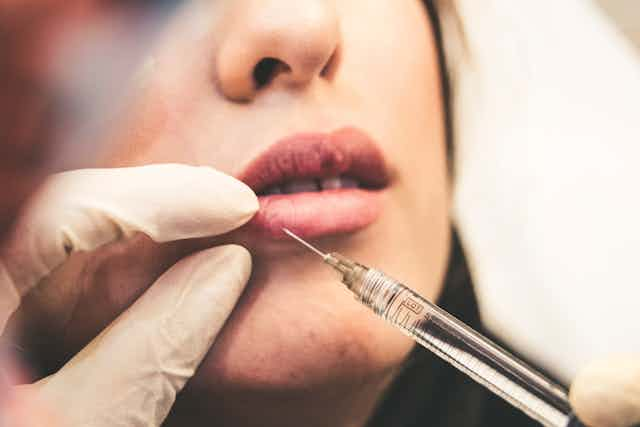An All Natural Approach to Cosmetic Surgical Treatment: Why Emotional Checks Matter
In the last few years, the significance of incorporating mental evaluations right into the cosmetic surgery process has gained enhancing attention. An alternative method not just resolves the physical aspects of surgery however likewise highlights the mental preparedness of the client, which is vital for accomplishing desired end results. Recognizing motivations, recognizing prospective psychological health concerns, and establishing realistic expectations can profoundly affect complete satisfaction levels. The assimilation of these psychological checks raises vital inquiries regarding the ethical duties of medical care companies and the effects for patient care. As we explore this subject, the intricacies end up being significantly evident.
Comprehending Psychological Readiness
Before going through plastic surgery, it is critical for individuals to examine their emotional readiness, as this evaluation can considerably affect both the decision-making procedure and the overall outcomes of the treatment. Emotional preparedness includes an individual's psychological security, dealing mechanisms, and reasonable assumptions relating to the surgery and its results.

Mental wellness assessments performed by qualified specialists are indispensable in this context. They can aid determine any kind of underlying psychological concerns, such as body dysmorphic condition or anxiousness, which may make complex the medical process. Inevitably, a truthful assessment of psychological readiness not just sustains educated decision-making yet also cultivates a much more positive medical experience, enhancing the probability of achieving wanted end results and promoting long-lasting wellness in the person's life.
The Role of Motivation
Recognizing psychological readiness is very closely intertwined with the motivations behind seeking cosmetic surgery. Motivation works as a crucial vehicle driver that influences an individual's decision-making process and general satisfaction with the outcomes. Applicants may be inspired by different variables, consisting of individual instabilities, social stress, or a need for self-improvement. Identifying the underlying motivations can reveal understandings right into the person's emotional state and preparedness for the treatment.
Inherent inspirations, such as a real need for self-enhancement and self-confidence, are usually related to a lot more beneficial outcomes. Alternatively, external motivations-- like looking for recognition from others or attempting to fit social perfects-- may indicate unsolved mental issues that can complicate the medical trip.
Moreover, recognizing these inspirations helps medical care specialists to examine the suitability of the treatment and the chance of accomplishing desired results. It is vital for practitioners to participate in seminars with clients, enabling them to verbalize their reasons for going after surgery. By checking out inspirations completely, experts can better make certain that people are prepared not only for the physical changes but additionally for the emotional and psychological effects that accompany plastic surgery.
Typical Emotional Problems
Various emotional concerns can develop in people taking into consideration plastic surgery, dramatically impacting their overall experience and fulfillment with the procedure. One main problem is body dysmorphic condition (BDD), identified by an obsessive emphasis on regarded flaws in appearance. This condition can lead people to seek numerous surgical treatments trying to find an unattainable ideal, often resulting in disappointment and emotional distress.
Furthermore, anxiousness and depressive signs and symptoms may emerge in prospects for plastic surgery, stemming from pre-existing psychological health and wellness issues or the stress related to social requirements of beauty. These people might nurture impractical assumptions about the end results of the surgical procedure, believing it will fix deeper emotional or psychological issues.
Self-worth is another essential element, as numerous candidates tie their self-regard go to physical look. An absence of self-acceptance can lead to impulsive choices concerning surgical procedure, even more making complex recuperation and fulfillment levels. The social ramifications of cosmetic surgical procedure-- such as judgment from peers or altered connections-- can produce sensations of isolation or regret post-operation. Addressing these psychological issues is necessary to ensure people are making educated, healthy and balanced decisions concerning their plastic surgery journey.
Benefits of Emotional Assessments
An extensive psychological examination can provide significant advantages for individuals pondering plastic surgery. Largely, it helps to recognize underlying mental concerns that may affect both the choice to undertake surgical procedure and the expected outcomes. By evaluating these elements, doctor can make sure that candidates have sensible expectations and a healthy and balanced way of thinking, which are vital for fulfillment with the results.
In addition, psychological examinations can serve as a preventive procedure against prospective post-operative difficulties. People with unresolved emotional or mental problems might have problem with body photo disturbances or depression after surgery - invasive surgery psychological screening. By attending to these worries ahead of time, practitioners can supply tailored support and resources, promoting a more favorable healing experience
Additionally, mental examinations facilitate informed decision-making. They urge people to review their motivations for seeking cosmetic treatments, permitting for much deeper self-awareness and factor to consider of alternate choices. This process can result in enhanced patient-provider communication, promoting a collective strategy to cosmetic surgery that prioritizes mental and emotional wellness alongside physical makeovers.
Incorporating Explore Procedures

Additionally, integrating emotional look into the surgical process ought to also consist of recurring support. Post-operative follow-ups should deal with both physical healing and mental modification. Offering clients with access to psychological health and wellness experts can assist in dealing techniques and sensible self-image reinforcement, improving their general surgical experience.

Final Thought
Finally, the assimilation of mental analyses into the plastic surgery process is necessary for promoting individual health and enhancing medical outcomes. By examining psychological preparedness, comprehending motivations, and resolving typical mental health and wellness problems, healthcare companies can assist in enlightened decision-making and foster healthier coping techniques. This alternative strategy not only sustains clients in accomplishing sensible assumptions but also alleviates the threats associated with underlying emotional problems, inevitably leading to enhanced fulfillment and boosted post-operative experiences.
Understanding psychological readiness is carefully linked with the motivations behind seeking cosmetic surgical procedure. find more By discovering inspirations extensively, specialists can better guarantee that individuals are prepared not just for the physical adjustments yet additionally for the psychological and emotional ramifications that go along with cosmetic surgical treatment.
Numerous emotional problems can emerge in people taking into consideration cosmetic surgical procedure, dramatically affecting their general experience and complete satisfaction with the procedure. Resolving these mental issues is important to ensure people are making notified, healthy choices concerning their cosmetic surgical treatment journey.
A complete emotional examination can provide significant advantages for individuals pondering cosmetic surgical procedure. cosmetic surgery psychological checks.
Comments on “Why Cosmetic Surgery Mental Health Screening Is Vital for Long-Term Satisfaction”